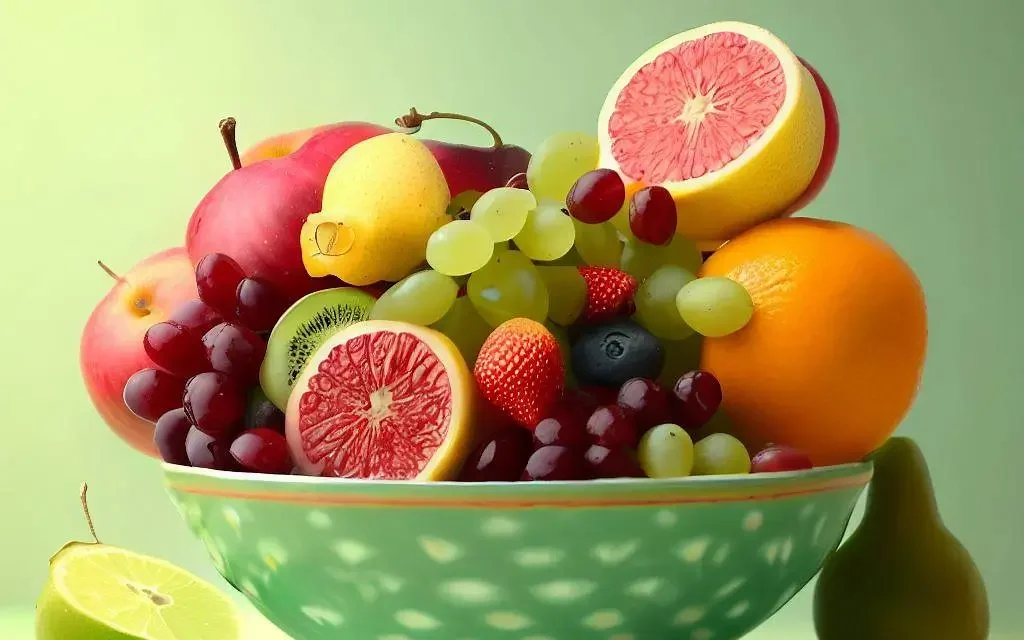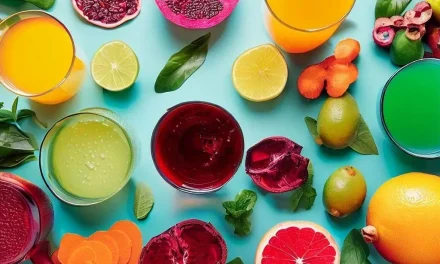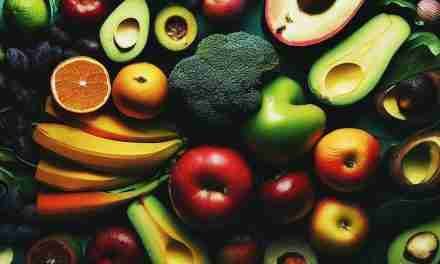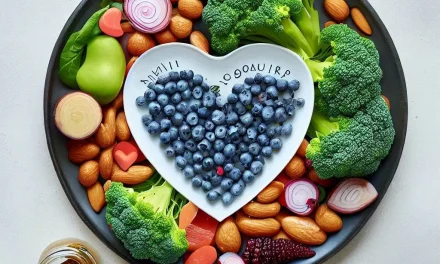If you’re worried about elevated blood pressure and want to find easy, natural ways to lower it, then you’re not alone. Over 1 billion people worldwide have hypertension and medications for this condition can work well, but they won’t necessarily get to the root cause. Plus, they can have some undesirable side effects.
A healthy diet can be an effective first line of defense for preventing high blood pressure, but understanding scientific research can be challenging. That’s why we translate the research into easy steps for you.
In this article, we’re going to explore some of the best fruits to help keep blood pressure in a healthy range. We’ll also discover the relationship between sleep and blood pressure and how one fruit could help improve both.
Lower Blood Pressure: Boost Heart Health with Nutritious Fruits
7. Cantaloupe: A Sweet Ally in Lowering Blood Pressure
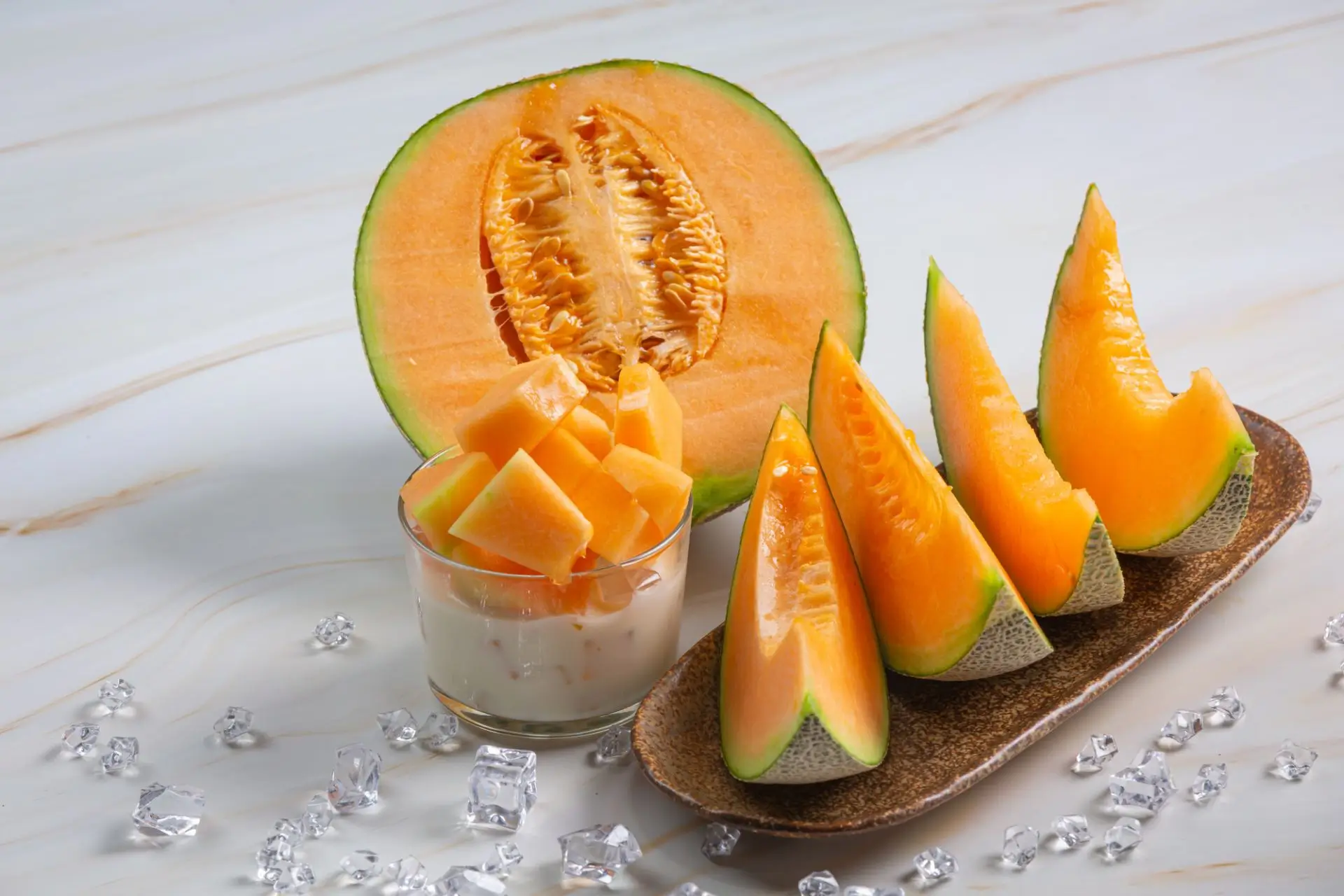
A refreshing and healthy fruit that is at its best during the summer months and can be beneficial for blood pressure is cantaloupe, also known as rockmelon.
This fruit contains vitamin C, folate, potassium, magnesium, and choline. Nutrients that are all associated with reduced blood pressure.
For example, one cup of cantaloupe provides 100% of the recommended amount of vitamin C, an essential vitamin for heart health. Furthermore, folate is important in helping blood vessels relax and improving blood flow.
Studies have shown that diets rich in folic acid, the supplemental version of folate, can improve blood pressure. A large study of 150,000 women analyzed their diet and blood pressure information. It showed that women aged 27 to 44 who consumed at least 1000 micrograms daily of folic acid from supplements and foods were 46% less likely to develop elevated blood pressure than women who consumed less than 200 micrograms daily.
Additionally, the minerals magnesium and potassium are key for blood pressure regulation. They also work together with choline and vitamin C to help lower blood pressure.
Choline is a mineral that you don’t often hear much about. However, symptoms associated with deficiency in this mineral include elevated blood pressure, so enjoy the health benefits associated with this fruit. It can be eaten as a light, refreshing snack in a fruit salad or in a melon and cucumber salsa.
Next up is a fruit that has been found to reduce blood pressure and is often associated with its rich fiber content.
6. Prunes: Your Natural Solution for Blood Pressure Control
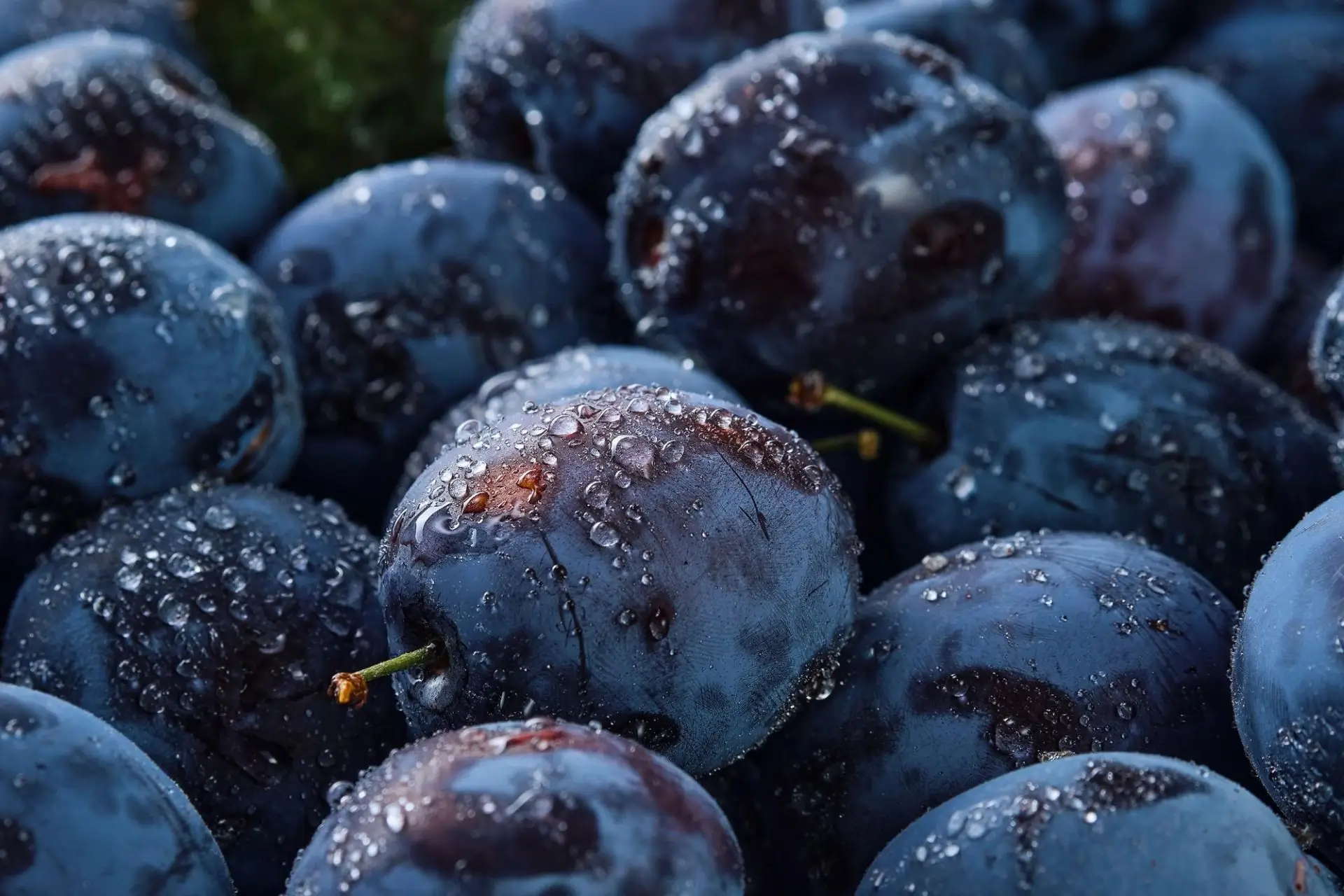
This wrinkly fruit is the dried version of plums. Prunes or prune juice are often recommended for people who struggle with constipation because of the rich fiber content, which can help keep your bowel movements regular and can also help with weight loss, as eating plenty of fiber helps you feel full for longer.
Aside from this, high intakes of fiber are also associated with a lower risk of cardiovascular disease. Interestingly, a 2010 controlled clinical trial found that prunes helped reduce blood pressure over an eight-week period. They are also high in vitamin K, niacin, vitamin A, vitamin B6, and riboflavin. These are all important for maintaining a healthy body.
TIP! 👍
Prunes can be eaten with yogurt or as a snack on their own.
5. Guava: A Tropical Powerhouse for Blood Pressure Reduction
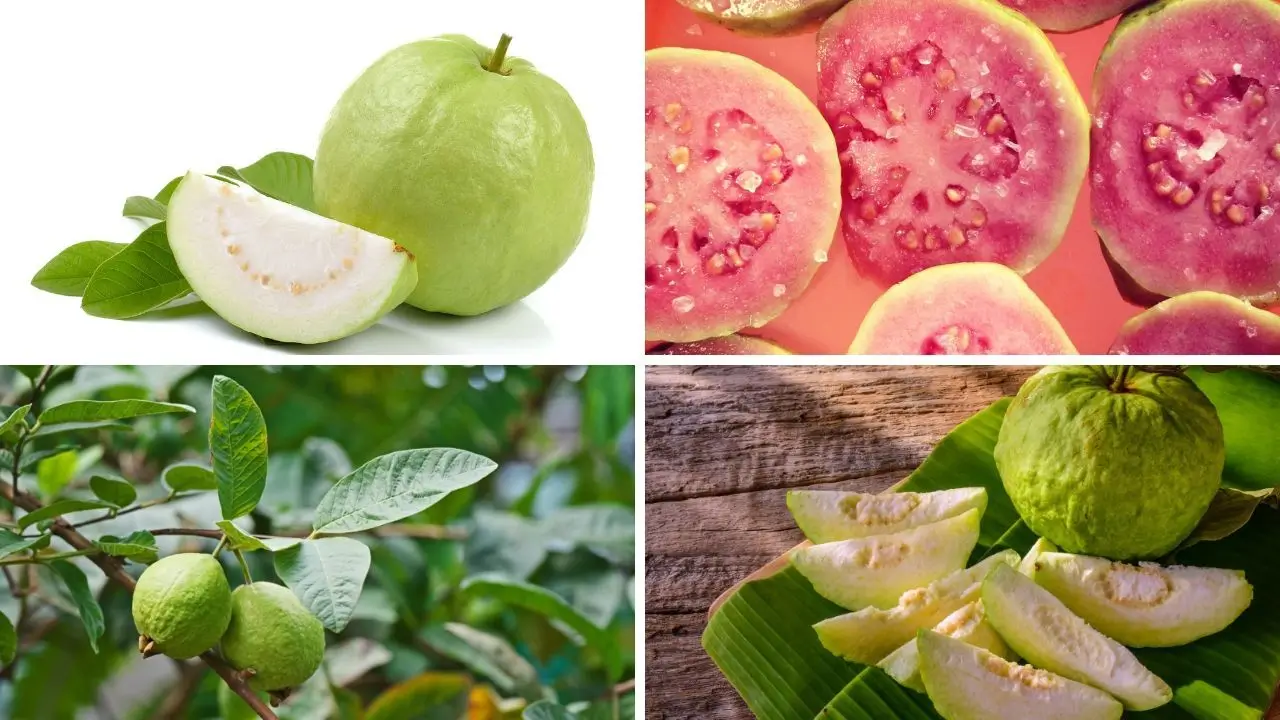
photo credit: https://www.ayurtimes.com/wp-content/uploads/2019/07/Guava.jpg
This is a tropical fruit that’s native to Central America. The fruits and leaves alike have been used as a health remedy for various conditions.
Interestingly, a 1992 clinical trial on 120 people found that those who were given guava before meals saw a decrease in blood pressure of eight to nine points. A further 2010 review noted that using the leaves to make tea can help with blood sugar regulation. This is thought to be due to the compound in the leaves, which helps moderate glucose absorption after eating.

People with blood sugar disorders, such as diabetes, have a much higher incidence of hypertension. Therefore, lowering blood sugar can be critical for a healthy cardiovascular system. Further reasons why guavas can be so beneficial for health are that they have an abundance of antioxidants, vitamin C, potassium, and fiber. These nutrients all play a role in keeping our hearts healthy.
Potassium, in particular, helps balance blood pressure because it helps the body get rid of sodium and as you probably already know, too much sodium in the body can cause fluid retention. Holding on to fluid causes an increase in blood pressure due to the increased volume of blood. Hence, potassium can help reduce blood volume and, therefore, blood pressure.
An analysis of 33 studies discovered that individuals who consumed plenty of potassium-rich foods significantly reduced their blood pressure and had a 24% lower risk of stroke.
TIP! 👍
To gain the benefits of guava, either eat the fruit or use the leaves to make tea.
4. Apricots: Sweet Treats for Effective Blood Pressure Management
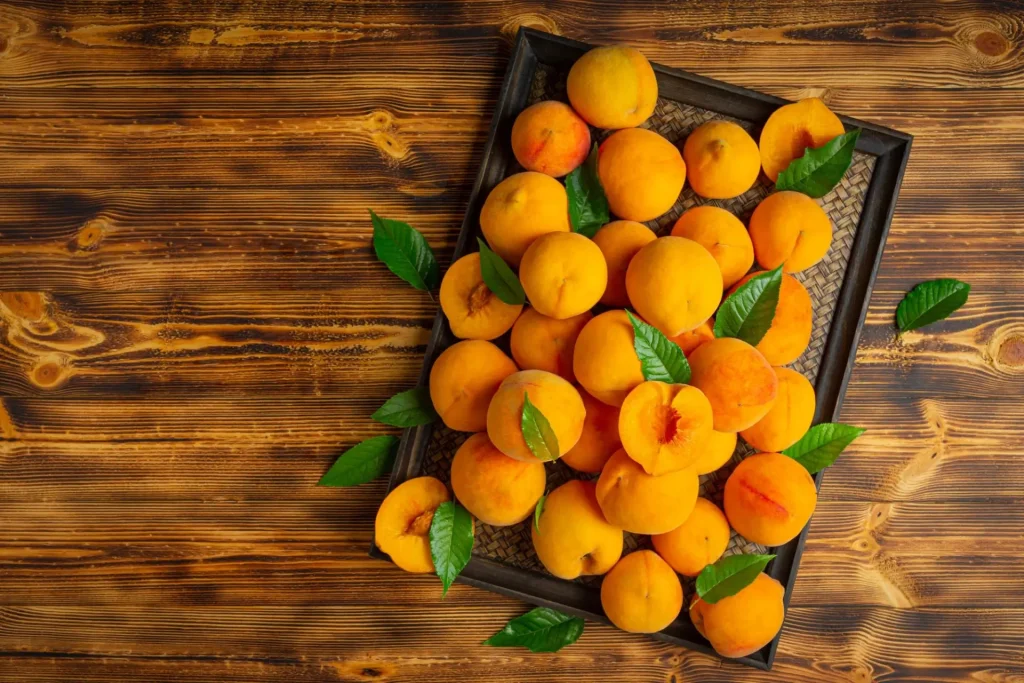
Aside from their abundance of potassium, apricots are also noted for their ability to improve digestion, constipation, earaches, fever, skin diseases, and anemia.
This fruit contains vitamins A and B3 and minerals such as potassium, copper, manganese, magnesium, and phosphorus. It is also an excellent dietary fiber source, essential for a healthy cardiovascular system. Plus, it provides an abundance of antioxidants called flavonoids.
These have been shown to protect against chronic diseases such as diabetes and cardiovascular disease.
They provide a source of vitamin C, an essential factor for heart health. This vitamin helps build collagen in the blood vessel walls.
If our body isn’t making enough, our arteries can become very stiff, increasing blood pressure as the arteries can no longer dilate optimally. Arteries can also lead to increased damage to their walls, which can lead to severe issues such as heart attacks.
TIP! 👍
Adding apricots to your diet is easy, as they can be used in sweet and savory dishes. Eating dried apricots is a great option if they’re not in season.
As we have uncovered the importance of vitamin C for our heart health, I am now going to another food rich in this vitamin. Additionally, this fruit can also help improve sleep. Can you guess what it is?
3. Cherries: Bursting with Flavor and Blood Pressure Benefits
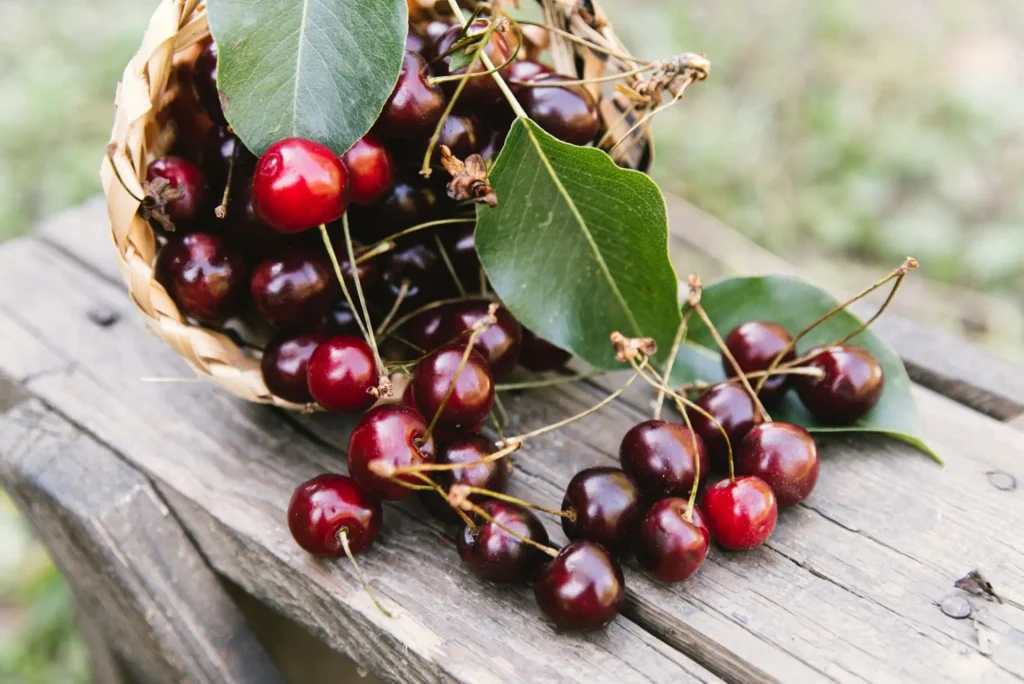
Stone fruits are available in two main varieties: sweet and tart. Both are good sources of vitamins and minerals, particularly potassium and vitamin C, which we’ve discussed as important for maintaining healthy blood pressure.
Cherries contain powerful polyphenol antioxidants such as flavonoids, anthocyanins, and catechins. These help to decrease inflammation and protect cells from damage. Both are important factors for cardiovascular health.
Studies have shown that a higher intake of these antioxidants decreases the risk of heart disease. Considering hypertension is one of the significant symptoms of heart disease, ensuring you eat a diet rich in these polyphenols is crucial. Furthermore, tart cherries have been studied for their ability to help regulate sleep. This is because they contain melatonin, which helps regulate the sleep-wake cycle.
One study on people over 50 suffering from insomnia found that those who drank one cup of tart cherry juice (around 240ml) before bed increased sleep time by 84 minutes.
Now, I know that you may be wondering what sleep has to do with blood pressure. Well, according to the CDC, sleeping less than 7 hours a night increases your chances of having hypertension. Plus, the Mayo Clinic website says that if you already have high blood pressure, not sleeping well may make it worse.
Therefore, eating cherries can play a role in lowering blood pressure and improving your heart health.
TIP! 👍
To include these in your diet, either enjoy the sweet variety as a tasty snack or consume tart cherry juice for improved sleep.
Now, for a fruit that is a rich source of potassium and magnesium. It’s not often thought of as a fruit, but it is an excellent addition to a heart-healthy diet.
2. Avocado: The Heart-Healthy Fat That Lowers Blood Pressure

We’ve already discussed the benefits of potassium for keeping blood pressure in check, but another important mineral for this is magnesium.
Fortunately, this fruit is a rich source of magnesium, a mineral responsible for over 300 chemical reactions in the body. Importantly for blood pressure, it helps our blood vessel wall relax, thus allowing blood to flow easily.
Avocados also contain heart-healthy monounsaturated fat, plus a wide range of vitamins such as vitamin C, vitamin K, vitamin B, vitamin E, and vitamin A.
These all work to help support a healthy immune system and enable the body to work optimally. A further bonus reason to eat avocado is that it contains fiber.
TIP! 👍
Be sure to enjoy this delicious fruit whether you make delicious guacamole or add it to a salad, this fruit is a must.
Now, we’ve already mentioned some of the reasons vitamin C is so important for healthy blood pressure and a robust cardiovascular system. And that leads me to our number one fruit to consume for lowering blood pressure.
1. Citrus Fruits: Vitamin C-Rich Allies Against High Blood Pressure
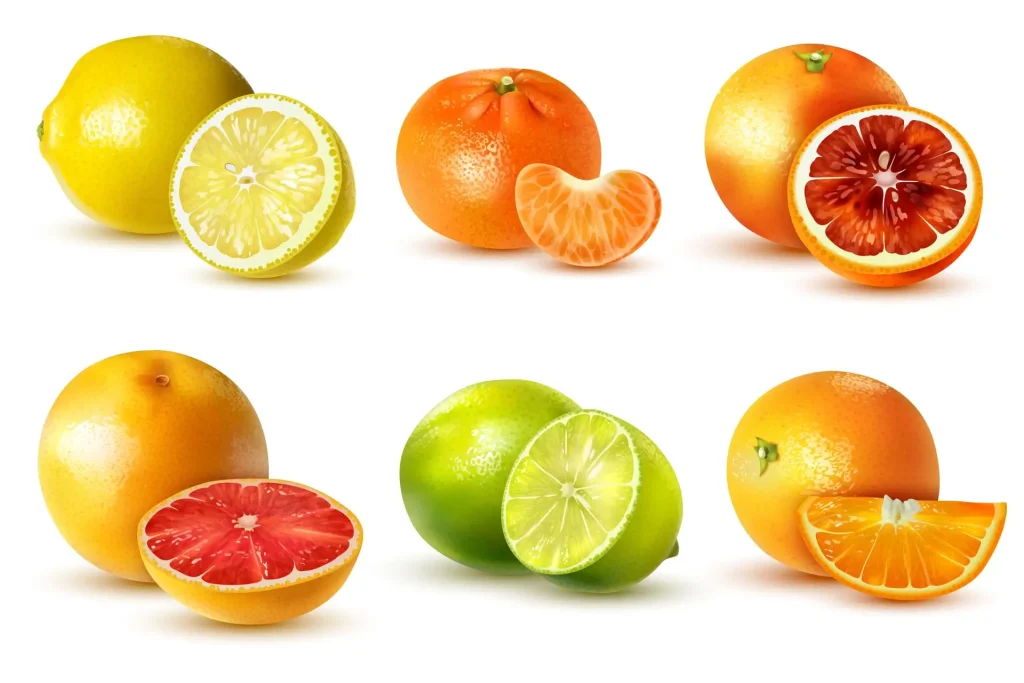
Citrus, whether oranges, lemons, or grapefruit, is known for being a good source of vitamin C. Along with its immune-boosting capabilities, vitamin C can also act as a diuretic, aiding the kidneys in excreting excess water and sodium, which helps to relax blood vessel walls and decrease blood pressure.
Citrus fruits also contain a special substance called naringin, a very small bioflavonoid with amazing healthy properties.
For example, it lowers inflammation, reduces oxidative stress, improves cholesterol, lowers triglycerides, improves blood sugar, and increases the good enzymes while decreasing the bad proteins.
A 2014 study of 101 women found that those who drank lemon juice and walked daily had significant reductions in systolic blood pressure, the top number on a blood pressure reading. Studies have also indicated the same for oranges and grapefruit.
Important! ⚠️
Grapefruits can interfere with blood pressure medications, so consult with your physician before adding them to your diet.
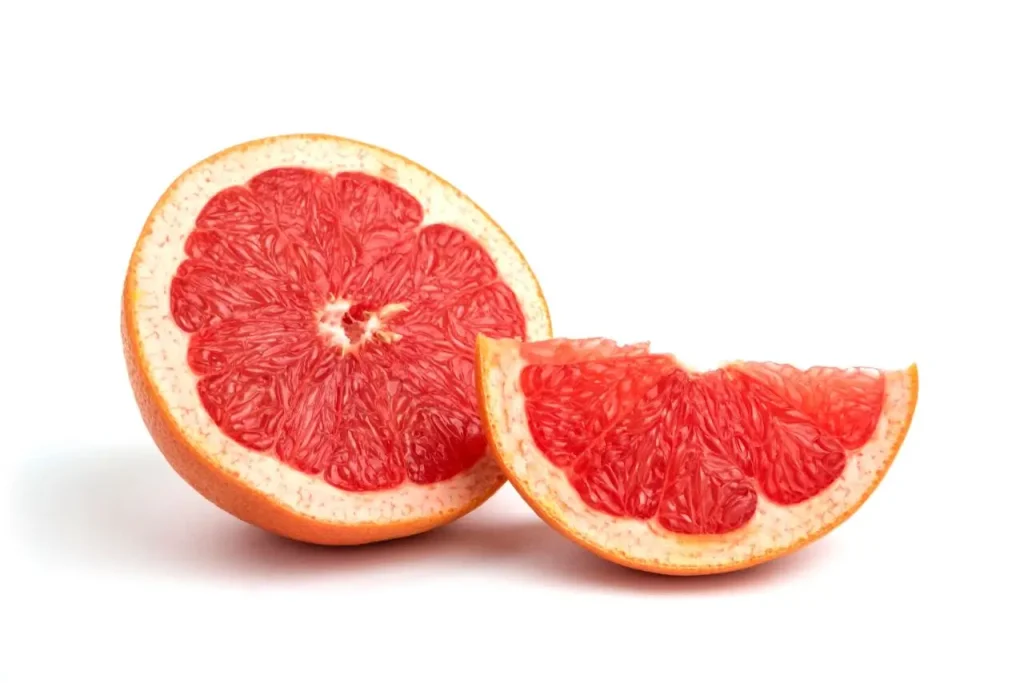
Whether you snack on these fruits or use them in recipes, they can have significant benefits.
If you don’t like eating fruit, then try squeezing fresh lemon over savory dishes. This will increase your intake of vitamins, plus it can help bring out flavors and improve digestion.
Further reading:
https://www.heartuk.org.uk/low-cholesterol-foods/omega-3-fats
http://blog.arthritis.org/living-with-arthritis/omega-3-fatty-acids-arthritis/
https://journals.sagepub.com/doi/abs/10.1177/1203475420929925
https://www.health.harvard.edu/newsletter_article/no-need-to-avoid-healthy-omega-6-fats
Key Takeaways!
– Over 1 billion people worldwide have hypertension. A healthy diet can be an effective first line of defense for preventing high blood pressure.
– Guava is a tropical fruit native to Central America. To gain the benefits of this amazing fruit, either eat it or use the leaves to make a tea. They have an abundance of antioxidants, vitamin C, potassium and fiber. These nutrients all play a role in keeping our heart healthy.
– Apricots are noted for their ability to improve digestion, constipation, earaches fever, skin diseases and anemia. The fact they provide a source of vitamin C is an important factor for heart health. Additionally, this fruit can also help improve sleep.
– Cherries contain powerful polyphenol antioxidants such as flavonoids, anthocyanins and catechin. These help to decrease inflammation and protect cells from damage. Eating cherries can play a role in lowering blood pressure and improving heart health.
– Avocados are a rich source of potassium and magnesium, a mineral that is responsible for over 300 chemical reactions in the body. Avocados also contain heart healthy monounsaturated fat. A further bonus reason to eat avocado is that it contains fiber.
– Citrus is known for being a good source of vitamin C. Can also act as a diuretic, aiding the kidneys to excrete excess water and sodium. Study found those who drank lemon juice and walked daily had significant reductions in systolic blood pressure.

